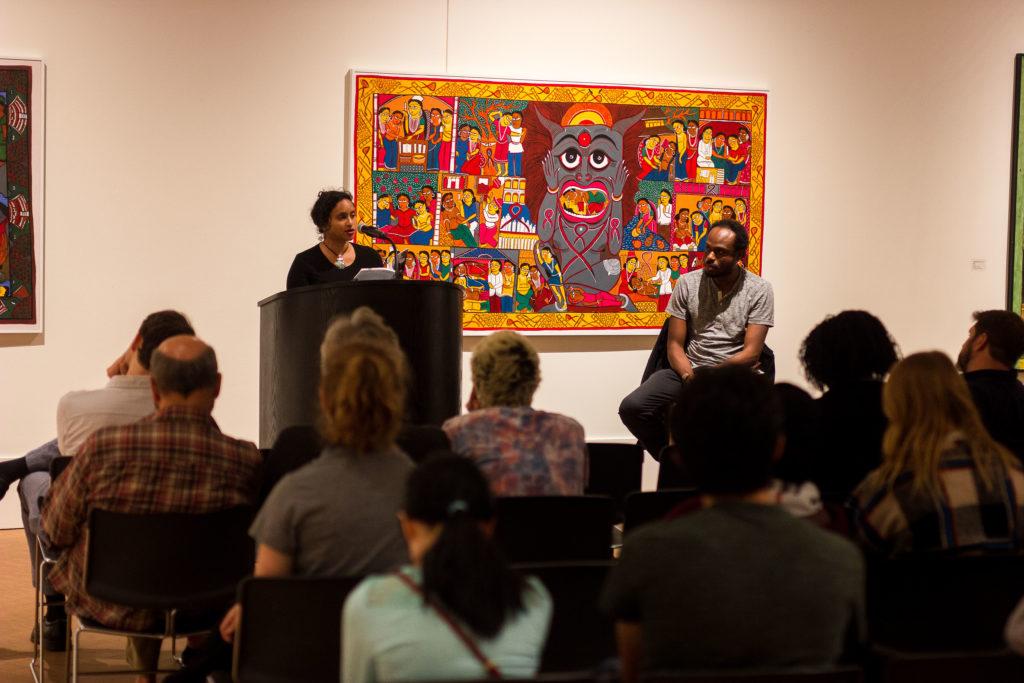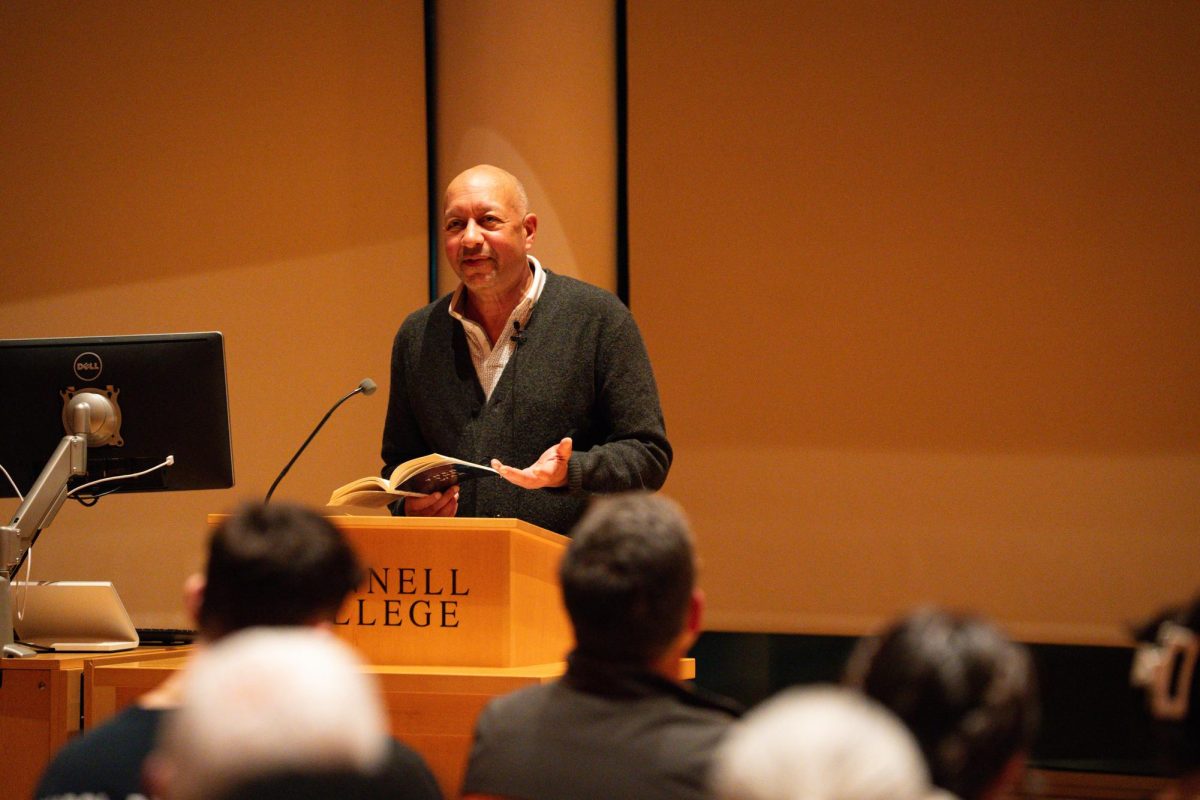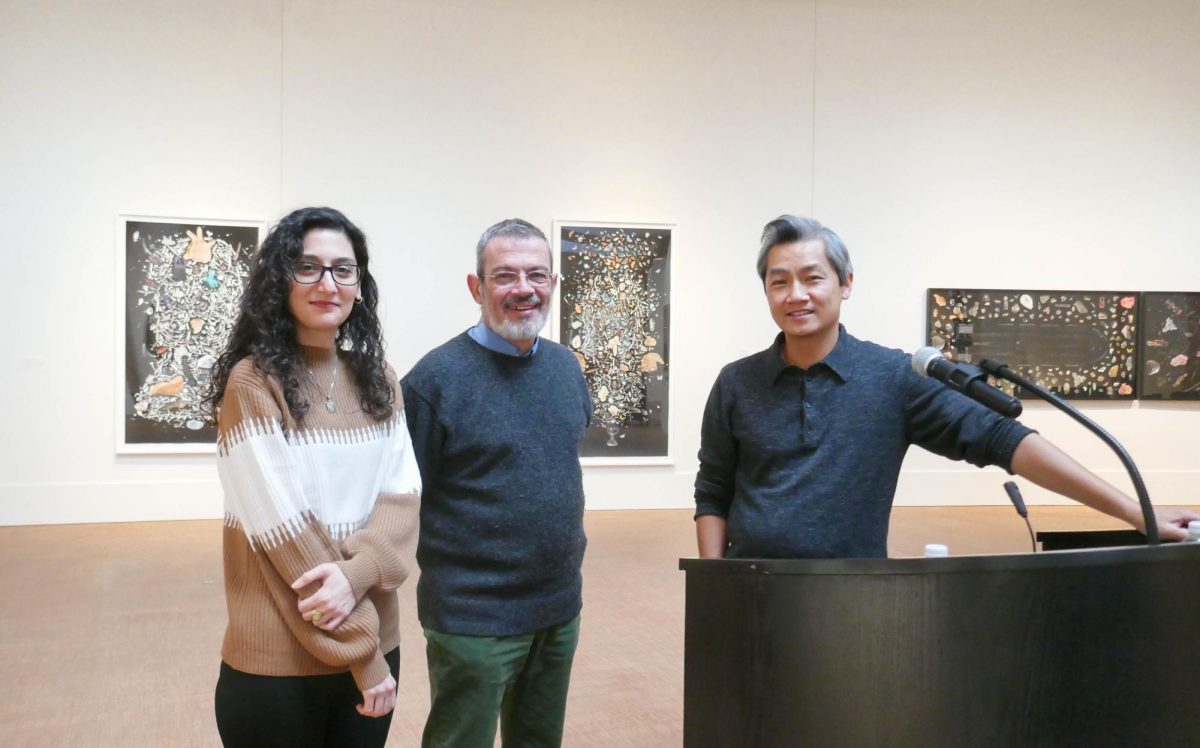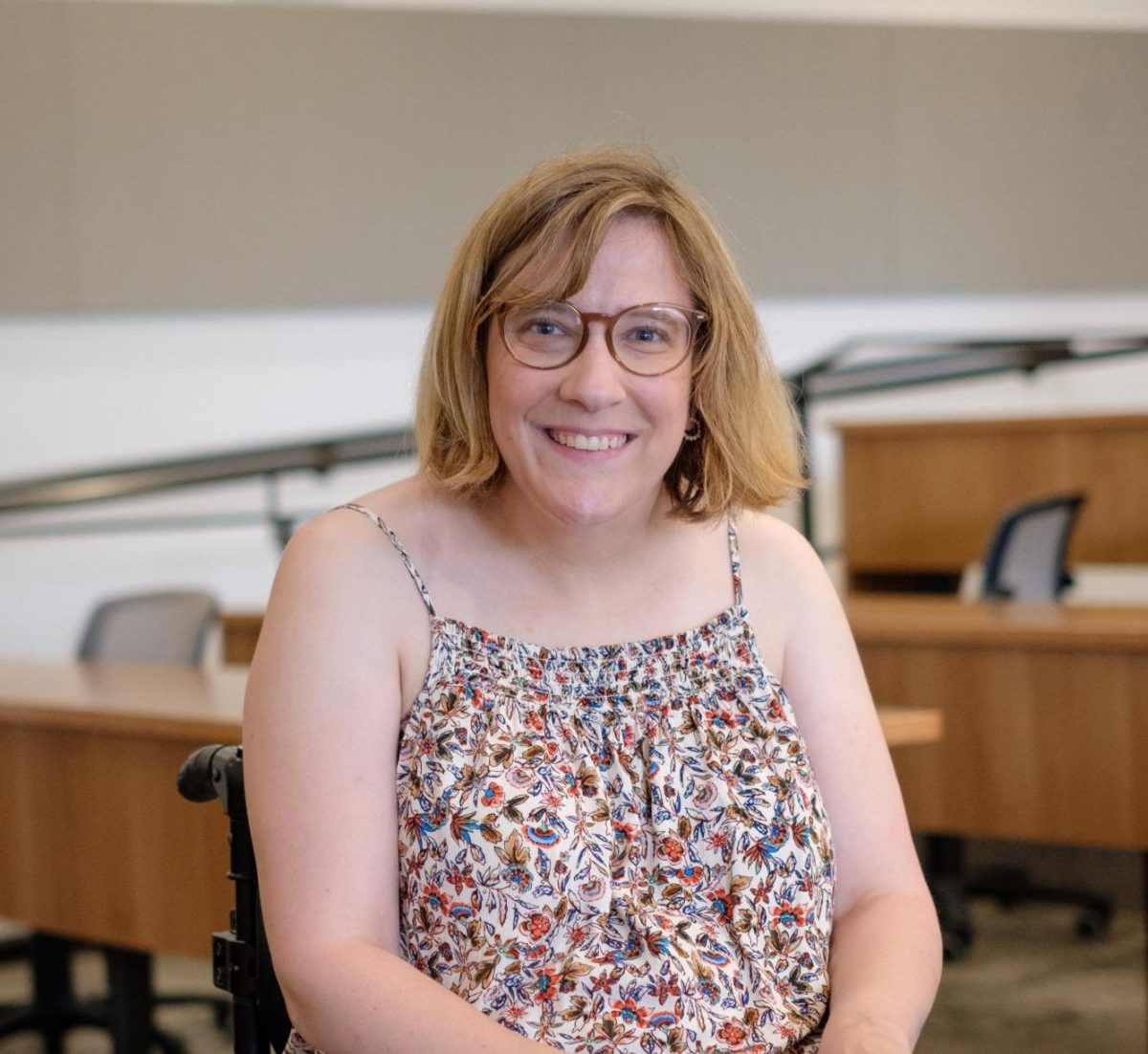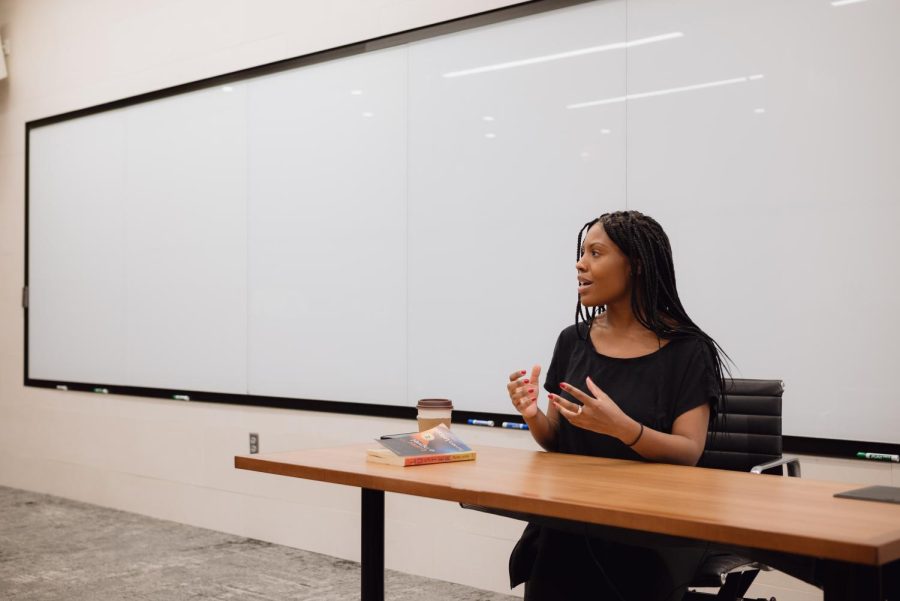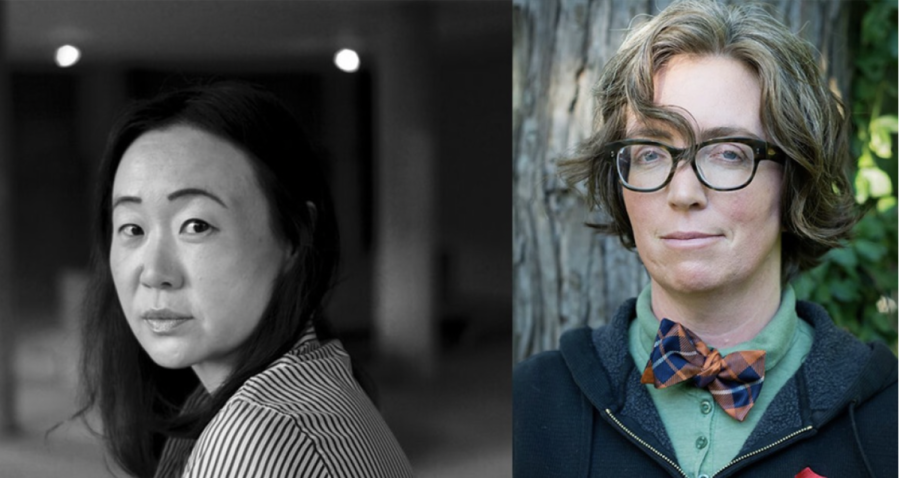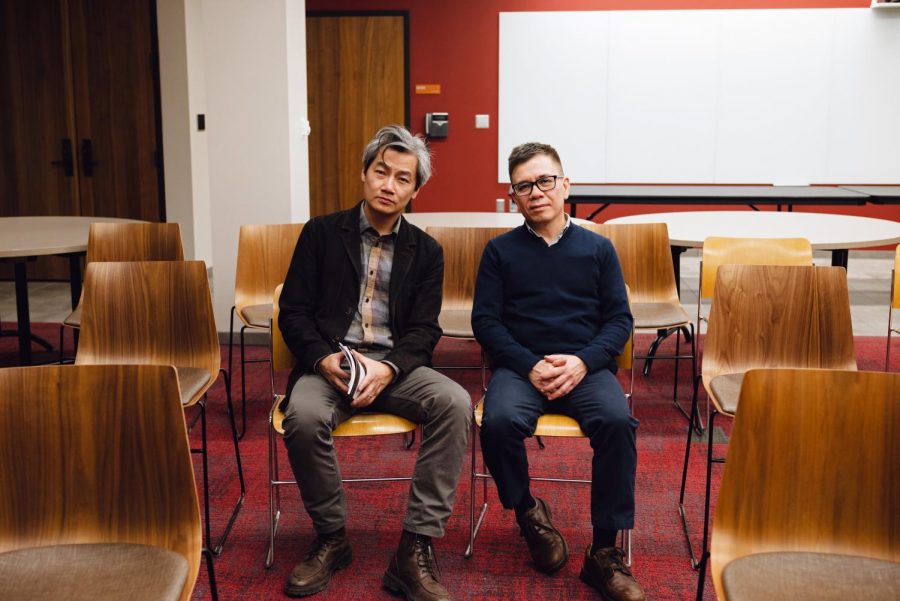By Kelly Page
pagekell@grinnell.edu
On Thursday, Oct. 5, Writers@Grinnell hosted poets Jamaal May and Tarfia Faizullah. May, who grew up in Detroit, has written the poetry collections “Hum” and “The Big Book of Exit Strategies.” His incredible command of poetry explores injustices in America coexisting with internal struggles, all infused with dark humor and poignant observation. Faizullah was born to Bangladeshi parents who moved to West Texas where she spent her childhood. Her book “Seam” explores human suffering, especially in the context of the Bangladeshi Liberation War of 1971. She relates images and impressions of the world with incredible virtuosity.
Both May and Faizullah are educators of poetry and creative writing, and Grinnellians were lucky enough to hear from them at their round table discussion and poetry reading on Thursday night. Before the roundtable discussion they invited students to read “I Was in a Hurry” by Dunya Mikhail, which describes the speaker’s country as a lost object that they dropped while in a hurry.
This type of metaphor was an important piece of what May and Faizullah explored in the discussion. Faizullah discussed the concept that, as she said, “You are unsafe in the world without a grasp of metaphor,” outlining the importance of being able to draw connections between different ideas that are not obviously linked.
She spoke about a small blue dress that she had seen in a museum dedicated to the Bangladeshi Liberation War which had belonged to a young girl who had been crushed by a soldier’s boot, and explained that she became obsessed with that idea because a small blue dress and a boot should not be connected which made the situation all the more horrifying. That connection is where the metaphor lies. “Metaphor,” she said, “allows us to build bridges,” whether between ideas or people.
May continued this idea by saying that part of metaphor is your brain filling the space between ideas and their manifestation. He allows experiences to come to him from life, and creates connections between what he has lived in order to form poems. In his words, “metaphor tickles the brain,” and the techniques poets use are what cause writing to be pleasant. He calls poetry “the unity of opposites” because it “lets more than one thing be true at the same time,” growing thoughts and images directly from conflicting concepts.
When asked what drives them to create poems, May pointed to George Orwell’s theory of the four reasons people write: egoism, aesthetic enthusiasm, historical impulse and political purpose. He says in his own life, he perhaps started out of egoism, because the knowledge that he was good at writing poems and that people responded positively to them made him want to explore the craft of poetry further. However, he sees this egoism as a starting point that evolved into something much more complex as he started to see deeper possibilities for poetry. Faizullah said that she writes because, as she said, “We gravitate towards the art forms where we can be most accurate.” She believes that poetry is the best way she can personally express herself by drawing connections between seemingly contrasting ideas.
Grinnell was incredibly privileged to hear from these outstanding poets and to learn how poetry is unique in its ability to communicate certain ideas. Even for those who do not intend to write poetry or study it seriously, it is interesting to understand how the craft of poetry has given May and Faizullah a nuanced perspective on the world. As May said, “The poet’s higher self is a philosopher and the philosopher’s higher self is a poet.” Searching for truth in the world, one is bound to encounter something poetic.
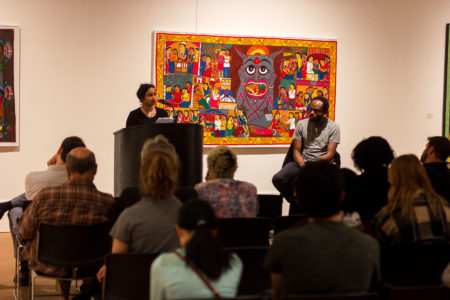
Photo by Govind Brahmanyapura




























































